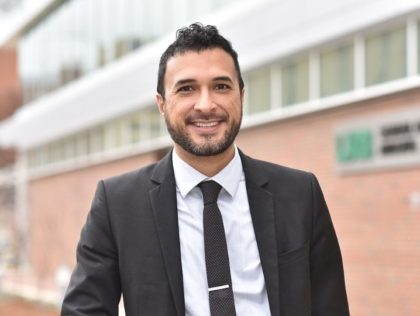R2P Webinar: Daily Caregiver Mental Health: A Dynamic Risk Factor of Elder Mistreatment
November 4, 2024
Presentation Description:
Caregiver mental health plays a crucial role in the well-being of care recipients, and when compromised, it may increase the risk of harmful behaviors such as elder mistreatment. Mental health is inherently dynamic, with symptoms varying both within and between individuals. This variability underscores the need to examine how daily mental health experiences influence the risk of adverse caregiver behaviors, such as elder mistreatment, over time.
This presentation provides an overview of research focused on day-to-day variations in caregiver mental health, the association with adverse caregiver behaviors, and how this knowledge can help predict and prevent elder mistreatment. Further, this presentation introduces novel approaches for elder mistreatment research grounded in a complex systems model of caregiver mental health. Based on this model, increased variability in daily caregiver mental health may serve as an early warning signal for mistreatment, highlighting the potential for early detection and mitigation of risks.
Presenter:
Dr. Frank Puga is an Assistant Professor in the Department of Acute, Chronic, and Continuing Care at the University of Alabama at Birmingham (UAB) School of Nursing. He earned his Ph.D. in Psychology with a concentration in Behavioral Neuroscience from the University of Texas at Austin. His research focuses on the mental health and stress profiles of older adults living with chronic illness and their care partners, particularly in populations disproportionately affected by age-related diseases, such as Hispanic and LGBTQ+ communities. Dr. Puga’s current R01-funded project from the National Institute on Aging examines how stress, resilience, and cultural factors influence daily and long-term mental health outcomes among Hispanic dementia caregivers. A key objective of his work is to identify which individuals, and under what circumstances, are more likely to develop clinically significant psychopathology. A secondary aim is to determine the dynamic relationship between caregiver well-being and engagement in harmful behaviors, such as elder and vulnerable adult mistreatment. Ultimately, Dr. Puga’s research seeks to inform the development of culturally responsive, resilience-based interventions tailored to the unique needs of individuals living with chronic illness and their caregivers. As a Mexican American, he is deeply committed to ensuring that underrepresented and underserved populations at greater risk for age-related diseases are engaged in research, helping to promote more equitable healthcare outcomes.
NAPSA’s Research to Practice (R2P) Interest Group provides the most innovative research and best practices in APS including quarterly webinars, briefs, journal club discussions and more! There are 2 R2P groups available to join. Please go here to learn more about these groups and how to join: https://www.napsa-now.org/r2p-interest-group-and-resource-library/
*IMPORTANT: Membership in NAPSA is encouraged, but not required, to join the R2P Listserv.

